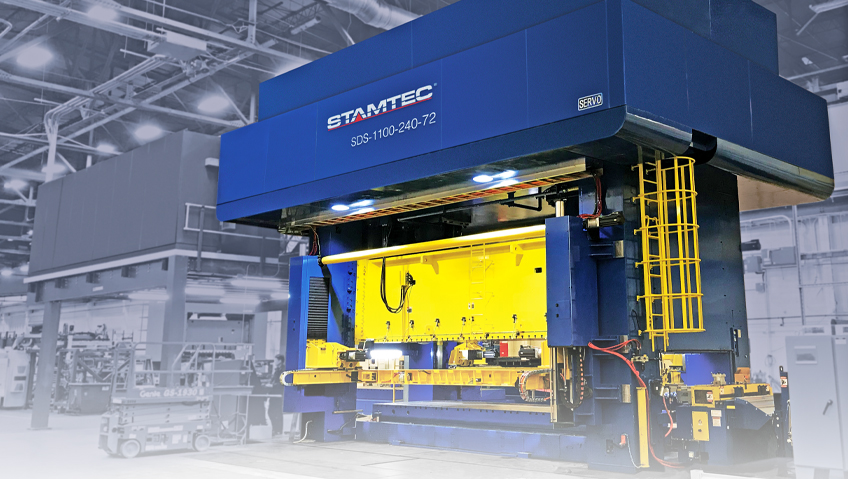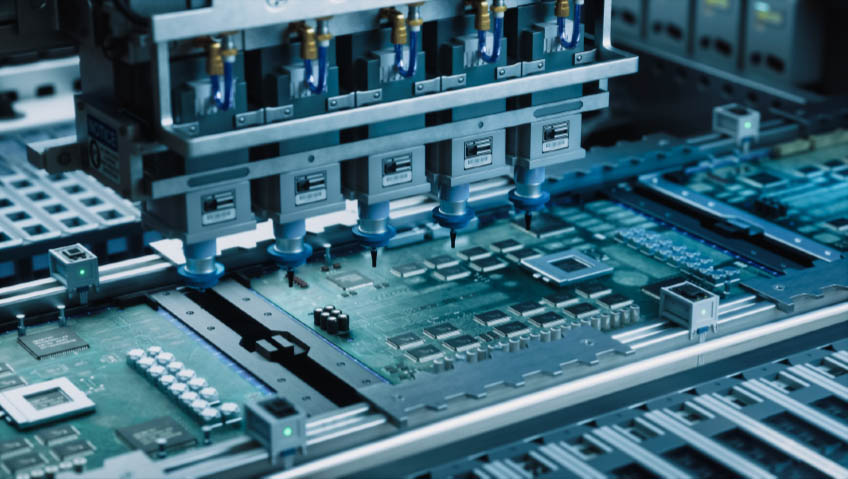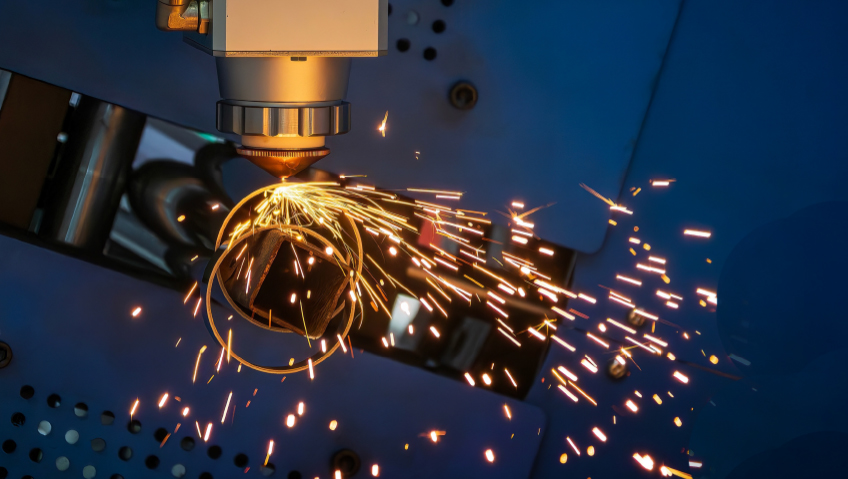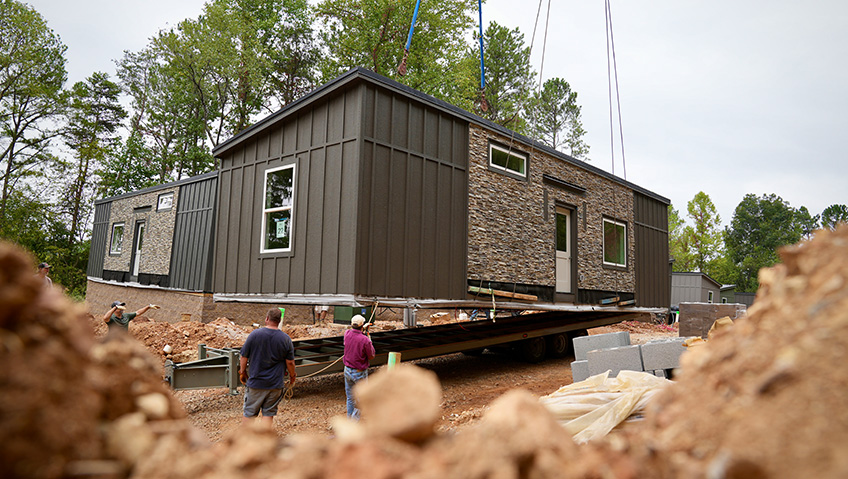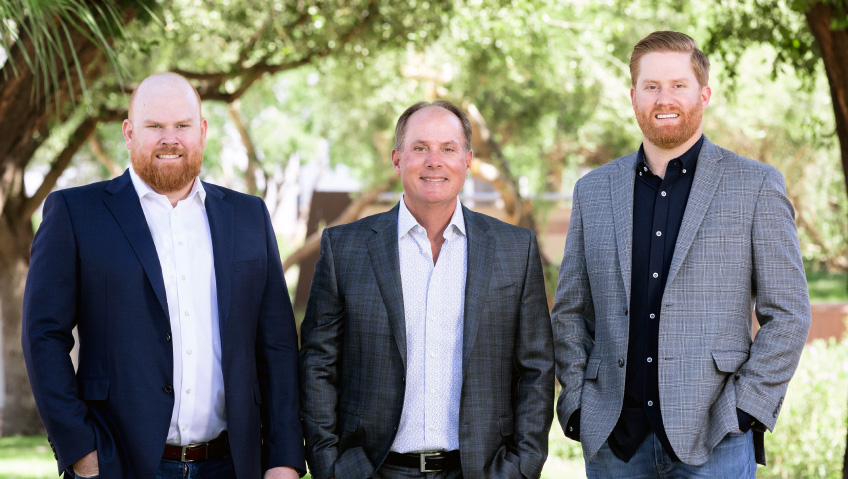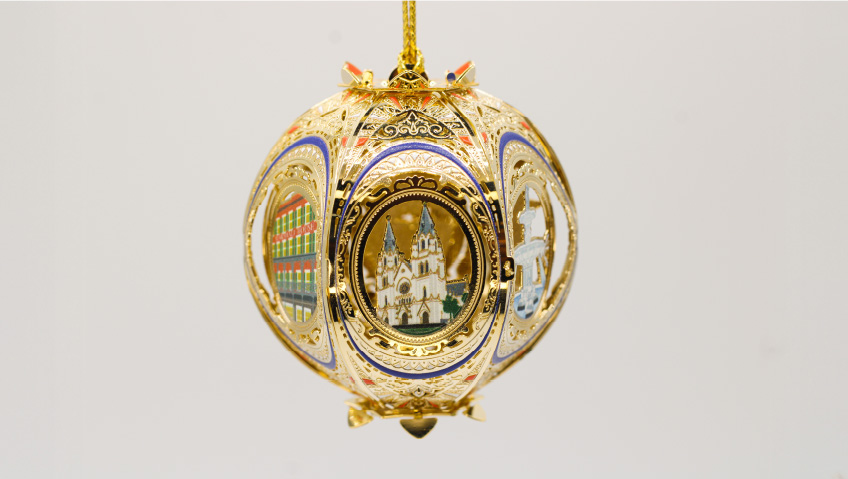Stamtec, of Manchester, Tennessee, sells industry-leading metal stamping presses and forming equipment. These wares are manufactured by a parent company in Taiwan in ISO-certified facilities, shipped to the U.S., and then sold by Stamtec to end users in a variety of sectors. Along with presses and other products, the company offers turnkey integration and comprehensive customer support.
“We’ve been making presses for more than 70 years,” says North American Sales Manager, Lee Ellard. “We’ve been bringing them into the U.S. for 40 years. We’ve got a large stock of presses here in Manchester, Tennessee for immediate delivery.”
With presses available in mechanical, forging, and servo varieties, Stamtec has the biggest in-stock inventory of new presses and spare parts in the United States. “We’re known for having a heavy-duty, high-quality press that’s durable and offers long life and high performance,” affirms Ellard.
Besides quality, there are additional advantages to purchasing a Stamtec press. “We manufacture our own presses in our own factories,” says Ellard. “Stamtec is owned by Chin Fong, which is the manufacturer of the presses, so you’re dealing direct with the factory when you’re dealing with us.”
Stamtec’s parent company, Chin Fong Machine Industrial Co., Ltd., was founded in 1948 and is currently the largest press manufacturer in Taiwan. Chin Fong operates eight manufacturing facilities comprising a total of seven million square feet and employing around 1,500 people. The company also manufactures its own clutches, brakes, drivetrains, and gears.
Stamtec, meanwhile, has 20 employees who work in a 72,000-square-foot facility near Nashville. It also has a branch in Queretaro, Mexico, which has eight staff members in a 10,000-square-foot facility.
“Here in North America, since we do not do the manufacturing or the heavy lifting for engineering/design work here… half the company is devoted to service—inside sales, service managers, and technicians,” Ellard explains.
The Tennessee branch does perform some assembly work, but not from scratch. “We bring in some presses that are too large to transport in one piece, so they get disassembled, and we [reassemble] them here to run them for our customers. But most of the presses get shipped here in pieces,” he says.
Stamtec also offers turnkey integration services for quick die changes, feeding and coil handling systems, press mounts, and press controls and monitoring. “We’ve got full project management and the ability to completely integrate and even provide the equipment for a stamped and formed production system,” says Ellard. Given all this, the company prefers to hire “people with mechanical aptitude that enjoy making things,” he continues.
Traditional mechanical presses, including forging presses, are the company’s most popular products. Available in gap frame or straight side models with crankshaft, eccentric shaft, eccentric-geared, or knuckle-joint drive systems, these presses range from 25 ton to 4,400 ton capacity.
Servo presses rely on servomotors as their drive source and are another rapidly growing product category for the company. Stamtec’s servo presses are fitted with high-torque, low-RPM servo motors and specialized press controls. These machines “provide full energy at any stroke speed, and deliver increased production volume when compared to hydraulic presses.”
Rigid and reliable Stamtec presses are made with high-end steel plate and precision-machined frame components. Tolerances exceed Japanese Industrial Standards First Class Standards, and many models feature removable side plates. Press controls come from companies such as Siemens, Allen-Bradley, Wintriss, Mitsubishi Electric, and Link Electric & Safety Control. The latter is a Nashville-based firm that pioneered press control technology in the 1970s to meet Occupational Safety and Health Administration (OSHA) standards, Ellard explains. Stamtec also sells coil handling and feed equipment.
The company sells direct to customers but also works with a network of distributors, some of whom have service, repair, and maintenance capabilities. At present, the company maintains satellite service centers in Milwaukee, Wisconsin; Ringwood, New Jersey; Dallas, Texas; Minneapolis, Minnesota; and Ontario, Canada. All end users, regardless of where they are located, receive extensive support, and Stamtec offers preventative maintenance, inspections, spare parts, training, repairs, upgrades, and advice for all clients whenever needed.
“We’re available pretty much around the clock,” Ellard says. “[If it’s] after hours, one of our people will get back in touch. You can call them on their cell phone or text them, and we’ll respond back pretty much any time of day.” If a problem can’t be resolved by phone or email, a technician will be dispatched to visit the customer’s workplace and fix the issue in person.
Stamtec also provides customer training in maintenance and machine operation, and this can be delivered either in-house or at the customer’s worksite. Stamtec also provides customers with resources on compliance, inspection issues, and industry regulations.
The company counts Daimler, Toyota, Nissan, Honda, Mazda, and Ford, as well several Tier One to Tier Three automotive parts suppliers, as major customers. In total, automotive makes up roughly 60 to 70 percent of the business. The large appliance sector represents another major market, with clients such as Maytag, Electrolux, and General Electric. Other sectors served include electronics—Foxconn is a customer—hardware, fasteners, and solar power.
“We’ve done quite a bit in the solar industry,” shares Ellard. “We’ve sold a lot of presses in that industry. Then, of course, EVs [electric vehicles]; we’ve done a lot with them. Those are areas that are relatively new—cutting-edge—that we’re providing presses for.”
The advent of the COVID pandemic had a mixed impact on Stamtec. When the virus spread in early 2020, the company was closed for two weeks along with other businesses in the state on orders from the governor. While things are back to normal in the office now, the pandemic is still causing supply chain disruptions.
COVID “wreaked havoc on ocean transportation and inland transportation—delays at the ports, congestion at the ports. The price of freight in general, ocean freight more so, tripled or quadrupled in some cases for about a year. It’s gotten a lot better of late,” Ellard explains.
Asked what the biggest challenge facing the company is, he says, “As always, it’s competition from other press builders. We try to stay ahead by being the best company we can be and providing a solid product at a really good price.”
While there are no immediate plans to open new branches in Canada or the U.S. the Manchester facility, on 28 acres of land, is well-positioned for growth should the need arise. Stamtec intends to remain focused on its strength of metal stamping presses and similar equipment, while some elements of the company’s existing product line might experience significance growth in the future; Ellard points to servo presses an example.
“Servo presses are still in their infancy or young teenage years,” he says. “It’s an amazing technology that’s changing the way people are making stamped parts and formed parts, and that’s still a new growth area for us.”
He offers a very positive forecast overall, based on both the popularity of the company’s products and global manufacturing trends. Re-shoring (that is, U.S. companies moving manufacturing operations that had been outsourced to Asia back to the United States) and near-shoring (the same process but involving the relocation of outsourced manufacturing plants from Asia to Canada or Mexico) has been ongoing for years, he notes, but the pandemic has greatly accelerated both trends.
“Although China and other offshore manufacturing facilities might be very cheap as far as labor and operation of the facility, there are definitely some downsides, such as logistics, lead times, political uncertainty, quality, responsiveness, and language and time zone barriers. There are plenty of reasons why China or India, for instance, are not as ideal or as cost-effective as they once were,” he says.
Stamtec, however, enjoys the best of both worlds. Its presses and other products are made at top-notch facilities in Taiwan, but sales, service, delivery, and logistics are handled domestically. It is a winning combination for a company dedicated to offering high-quality metal stamping presses.
Visit www.stamtec.com to find out more.

